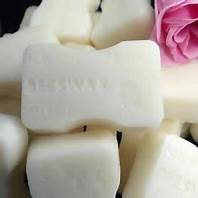The secrects of Musk
The Secrets of Musk
- Musk is a scent secreted from the scent glands of the male Tibetan musk deer, musk ox, civet cat, and several other species.
- It's name is probably derived from mushka, the Sanskrit name for scrotum, which describes the appearance of the deer's scent gland.
- Musk is used as a pheromone to attract and impress the females of the same species.Technically, a pheromone is a chemical messenger that has an involuntary biological effects on other members of the species.
- Pheromones secreted by female moths can attract males from several kilometers away. It is doubtful that humans produce pheromones . Other than making someone move away from you, your natural body odors are unlikely to cause any involuntary behaviour in other people!
- The odor of musk is not particularly pleasant, but despite this, many females are attracted to it. It also has the effects of heightening and increasing the persistence of scents from flowers.
- Musk is, therefore, a valued fragrance chemical and is used in many perfumes and deodorants.
- Muscone (also spelled muskone) is the active ingredients from the scent gland of the musk deer, while civetone is the main fragrance and produced by the civet cat.
- Manufacturers rely on these animals as the main source of these fragrances.
- Unfortunately for these animals, and despite the simplicity of their chemical structures chemists have not yet been able to develop and efficient method for manufacturing these fragrances.
- Chemically muscone and civetone are remarkably similar in structure, being based on a ring of 17 carbon atoms into a chain, but the problem comes when they try to join the ends together and fasten the bracelet (these string-of-beads' molecules writhe around like a bucket of worms.
- Their movement is random and the chance of both ends of the same molecule coming together so that the bracelet can be fastened, is extremely small.
- The probability that all of the molecules will find their way into this position is zero) As a result, the synthetic musk can only be produced in minute amounts that cost vastly more than their natural counterparts, which is why manufacturers still have to rely on animals for their main supply.
-
Musk Substitutes
- Nitro-musks are simple molecules that are easily and cheaply made. They are chemically unrelated to muscone or civetone but they have odors that are remarkably similar.
- They were once widely used as musk subsitutes in cheap perfumes and toiletries , but some of these compounds have since been found to be harmful.
- As a result, three nito-musks - moskene, musk tibetene and musk amberette have been banned from use in cosmetics in the EU.
- Nito musks are also capable of reacting chemically with other ingredients, forming nitrosamines which are potent carcinogens, or cancer-causing chemicals.
Reference: Cosmetics Unmasked: Dr Stephen & Gina Antczak
Articles-Latest
- 8 common mistakes that could be making your dry lips worse
- Dermatologist's insight on shower frequency without harming skin
- ‘Making Black More Beautiful’: Black Women and the Cosmetics Industry in the Post-Civil Rights Era
- A damaged skin barrier can leave you dry, itchy or oily. So, how do you fix it?
- What is collagen and why is it so popular in the beauty industry?
- Skin icing's not just for summer – this cryotherapy technique will get you party season ready
- How much sunscreen should you use and how often do you need to apply it?
- Are AHAs Safe?
- EXFOLIANTS - Cosmetics Unmasked
- ASTHMA - Toxic Beauty
- PHOTOSENSITIVITY - Toxic Beauty
- How to Tighten Your Loose Skin After Weight Loss
- Everything You Need To Know Before Getting A Septum Piercing
- What you should know about treating rosacea in darker skin tones
- Shampoos and Conditioners Designed to Soothe Dry, Itchy Scalps
- 3 things an expert wants you to know before getting filler
- Dissolving filler: everything you need to know
- How thread lifts differ to facelifts – and filler injections
- People are using face tape to minimise wrinkles, but does it work? After asking a plastic surgeon, I tried it for myself
- Reality of Black beauty influencing - making foundation with eyeshadow and unequal pay
Cosmetic ingredients
LOGIN
Who's On Line
We have 27 guests and no members online
Articles-Most Read
- Home
- Leucidal
- White Bees Wax
- Cosmetic Preservatives A-Z
- Caprylyl Glycol
- Cosmetics Unmasked - How Safe Are Colorants?
- Cosmetics Unmasked - Choosing Ingredients
- Cosmetics Unmasked - Colorants And Fragrances
- EcoSilk
- Toxic Beauty - Who's Looking At Cosmetics?
- Cosmetics Unmasked - Fragrances
- Microbes and Cosmetics
- Chemicals Lingering In The Environment
- Microbes and Safety Standards
- Toxic Beauty - Hazardous To Your Health
- Potassium Sorbate
- Yellow Bees Wax
- Synthetics In Cosmetics - The Industry Fights Back
- Fresh Goat's Milk Soap
- Active Ingredients
- What's Happening in the USA - Cosmetic Regulations - Toxic Beauty
- Cosmetics Unmasked - Listing Cosmetics
- Natural Waxes A-Z
- Toxic Beauty - Cocktails and Low Doses
- Natural Butters A-Z




